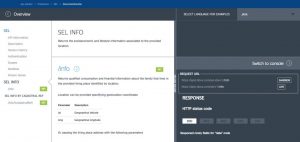Aggregated data APIs are access routes to collections of information from different sources and origins. These combined data, often offered anonymously, allow researchers, developers and the business community to gain access to statistics and knowledge that individual data do not offer. This brings a number of very significant advantages:
1. More speed and lower costs
In 2009, H. Cooper and E.A. Patall published a scientific article that has been widely cited by other researchers since then, recounting the benefits of analyzing statistical data in an aggregated way as opposed to doing so individually.
The conclusion of the study was that aggregated data serve to obtain a similar meta-analysis at a much lower cost, in other words: analyzing vast amounts of data using aggregated data APIs is faster and cheaper and achieves similar results.
2. Anonymization
Another major advantage is having access to data that would be impossible to obtain individually due to legal consideration regarding privacy protection, as it could be used to identify the participants. When this data is aggregated and offered via an API, it not only doesn’t contain personal identification but is all mixed together, thus removing individual elements that could skew the dataset.
So working with aggregated data makes the trend much clearer and more precise in overall terms, and isolates the elements that could distort the results.
3. Detecting global trends
When thousands, hundreds of thousands or millions of rows are aggregated in a dataset, you begin to see trends, fragmentation and historic valuations that can be the key to a better understanding of the market for your business and your customers.
Most governments or government agencies offer this type of data in the form of aggregate statistics, although perhaps not in the form of an API – although some do –, but it’s undoubtedly a good idea for a developer to build an API that works on these data and improves their business.
Being able to observe the data from a holistic point of view will give you a better perspective of your customers: their needs, their actions and their patterns. You’ll be able to predict changes and stay on top of the trends, and thus apply preventive changes or plan for events before they occur.
4. The option of making detailed analyses
Behavior patterns are particularly useful for any business, and not only patterns concerning economic data such as statistics on a population’s credit or indebtedness, which can give you an idea of future purchasing behavior.
Analyzing data in an aggregate way through an API is a good way of producing feedback and comparisons with individual results: to see why a customer has paid much less than the average, how to make them buy more in the future, analyze why a particular store has more sales compared to others in its immediate environment, or observe how customers respond to changes in the price of products over time.
BBVA SEL
The new aggregated data API of BBVA is SEL (Socio-Economic & Lifestyle information), which allows businesses to get to know their customers profile so they can create business opportunities tailored to their needs. The socioeconomic information that it offers includes estimated family income, number of phone lines, whether the home needs a reform, loan risk limit, etc. Only with the property boundary or address it will be possible to adjust their value proposition.
API SEL accesses estimated data from public sources based on data algorithms and offers on the spot real time information regarding savings capacity or previous defaults. Thanks to this socio-economic and lifestyle information, business will become more efficient identifying their potential clients improving their marketing precision.
BBVA PayStats
BBVA offers a very useful aggregated data API for any business focused on commerce. PayStats maintains, aggregates and anonymizes statistical data on millions of payment transactions made with BBVA cards to create an enormous network of consumer trends.
The information contained within BBVA’s PayStats can be consulted or analyzed by one or several of the following variables: gender, age, business category, date and territory. The output data when consulting this API had been stripped of any type of personal information that would identify them, that is, they are anonymized.
There are numerous methods to dig deeply into data. For example:
-
Basic statistics: PayStats offers statistics on payments for an area and business category such as total transactions, average value of each transaction, or the number of businesses established in that area. This is the most generic method, but also the one that serves as the basis so that the rest of the data acquire more sense.
-
Distribution by age or gender: two separate methods that give aggregate data on consumption by age bands or by gender for a particular area.
BBVA’s PayStats API offers multiple forms of analyzing the consumption data that can affect your business, so you can decide when to open a new store, or be a better equipped to adapt an already established business according to the behavior of the customers who shop there.
The data is always consulted by date segments, but the areas are also delimited either by zip code or else by quadrants of 500 by 500 meters aligned over the whole area of the country.
Are you interested in financial APIs? Discover all the APIs we can offer you at BBVA


























